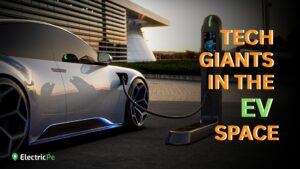India is creating a breakthrough in the marine industry with the launch of its first hydrogen-fueled electric ship. This innovative ship marks a significant turn in the direction of sustainable transportation.
The use of hydrogen fuel cells in the shipping industry is a major accomplishment since it cuts carbon emissions and lays the path for a greener future. In this piece, we will look at different facets of India’s first hydrogen-fueled electric ship and consider its impact on the marine industry. We know it’s a proud moment for everyone, so know all about it.
The Benefits of Hydrogen-fueled Electric Vessels
1. Zero Emissions: One of the key advantages of hydrogen-fueled electric vessels is their ability to emit zero emissions at the time of usage. Hydrogen can be utilized in fuel cells to generate energy, with the final product being water vapor. This may reduce the adverse impacts that maritime transportation has on the environment, especially in delicate ecosystems.
2. Energy Density: Hydrogen has a high energy density, which means it can store an extensive amount of energy in little space. High energy density enables larger operational ranges and minimizes the need for regular refueling.
3. Reduced Noise: Hydrogen fuel cells are often quieter than traditional combustion engines, leading to a peaceful and possibly less noisy maritime atmosphere.
4. Lower Dependency on Fossil Fuels: Hydrogen-fueled ships can help reduce dependency on traditional fossil fuels, promoting new sources of energy and enhancing the availability of energy.
Technology Behind India’s Hydrogen-fueled Electric Ship
The first hydrogen-fueled electric ship in India includes innovative equipment to ensure optimum performance and efficiency. According to Shipping Minister Sarbananda Sonowal, the initiative to develop hydrogen-fueled electric vessels is in line with the Global Maritime Green Revolution.
The ship is powered by hydrogen fuel cells, which turn hydrogen gas into energy and as a result, the need for traditional fossil fuels reduces. The energy produced is stored in onboard batteries, which offer reliable electricity for the ship’s engines and other machinery.
The ship’s design prioritizes energy efficiency while reducing environmental effects. Hydrogen fuel cells have many uses, including transportation, material handling, stationary, lightweight, and emergency backup power.
All About India’s First Hydrogen-fueled Electric Vessel
“Sarbananda Sonowal, Union Minister for Ports, Shipping, and Waterways, announced that the Ministry of Ports, Shipping, and Waterways will develop and build India’s first indigenous hydrogen-fueled electric vessels at Cochin Shipyard Limited (CSL), kicking off the country’s efforts toward green shipping.”
Madhu S. Nair, Chairman and Managing Director of Cochin Shipyard Limited (CSL), stated during a press conference in Kochi on Thursday that the construction of India’s first indigenous hydrogen-fueled electric vessel is a pilot project. “The project’s engineering is finished, and construction will begin as soon as all of the necessary machinery is purchased.” He informed the media that the fuel cell would be manufactured in India by a company based in Pune.
The hydrogen fuel cell vessel based on Low Temperature Proton Exchange Membrane Technology (LT-PEM) called Fuel Cell Electric Vessel (FCEV) is expected to cost around ₹17.50 crore of which 75 per cent would be funded by the Government, the Minister said.
He further claimed, “A lease of 42 acres of land for 30 years has been secured for this project, with the intention of building a shipyard based on lifts.”
“This is only for medium-sized ships with a maximum length of 130 meters, width of 25 meters, and weight of 6,000 tons,” he explained.
In addition, a parking facility for six such ships and a one-and-a-half-kilometer port will be available, he added, adding that 77% of the project has already been completed, despite a delay caused by the COVID-19 outbreak.
“When the project is completed around next year, Kochi will be known as a ship repair center.” Currently, 100 ships are fixed annually, but after this, it will expand to 150-160 ships annually.He said that the project will also lead to economic growth as it will provide employment opportunities to at least 3,000 people in the shipyard.
Conclusion: The Potential of Hydrogen-fueled Electric Ships in India
India’s first hydrogen-fueled electric ship marks an important milestone towards a more sustainable tomorrow. The use of hydrogen fuel cells in the maritime sector has the ability to transform the drive of ships and shift the industry towards an emission-free future. Electric ships will soon be routine in India and around the world with continued technological breakthroughs and government backing. By accepting this wonderful transition, we can create a healthier and more sustainable maritime industry for future generations.
Accept the future of environmentally friendly mobility and join the movement for a greener world.





